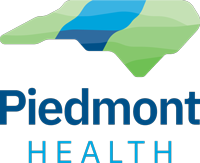
As we struggle with toxic politics and partisan bickering, it may seem like our government is on the verge of dysfunction – if we’re not already there. But life goes on, and that includes health care.
You may remember the alarm about the “funding cliff” last year, when it looked for a while like Congress was not going to renew a key source of funding for community health care centers – funds that allow us to offer high-quality care for all regardless of ability to pay, funds that we have received for decades with bipartisan support.
That disaster was averted but we can never relax; the federal funding situation is always uncertain.
Can we continue to provide health care in this uncertain environment? We must and we do. We do it by relying on community partnerships and innovative practices.
When Piedmont Health was established 48 years ago, our focus was on increasing access to health care for people for whom that was lacking. But back then it was mostly the poor who lacked access; today, increasingly, it’s the middle class as well.
Even many Americans who have well paying, stable jobs struggle with such issues as finding a primary care home, affording medications, getting help for substance abuse or dealing with aging loved ones without paying exorbitant costs of institutional care.
Let’s take that last one first. On Dec. 5, we will celebrate the 10thanniversary of Piedmont Health SeniorCare. SeniorCare is a Program of All-Inclusive Care for the Elderly (PACE), a growing model of care as the nation seeks to contain health-care costs while maximizing quality of care. When we created our SeniorCare PACE program in Burlington, it was one of only two in North Carolina. PACE programs offer comprehensive services designed to allow seniors who might ordinarily move to a nursing facility to remain at home instead. The care is coordinated by an interdisciplinary team from 12 disciplines, who together address the individual medical needs of each participant, with an emphasis on wellness and prevention.
Piedmont Health could not have established its innovative PACE program without partnerships, however. When we expanded PACE to a second site in Pittsboro, for instance, we partnered with the Carol Woods and Carolina Meadows retirement communities and the University of North Carolina Department of Family Medicine. The new PACE facility got funding from the Kate B. Reynolds Charitable Trust and substantial support through a grant from the Duke Endowment.
Another partnership we have with the community is our Small Business Health Service, a program we created with Chamber of Commerce organizations. It’s not health insurance; it’s a health program that provides health-care access to employees who might otherwise go without.The program offers uninsured Chamber members, their employees and their employees’ families medical and pharmacy services in any of our centers at a discounted price.
Piedmont Health has long had a partnership with the UNC’s medical school that brings physicians as residents to rural areas. We opened a health center at a homeless center in Chapel Hill with the Interfaith Council. We have partnerships with the Alamance Regional Medical Center.
What we have found is that, when we partner with organizations in the community, we can get things done that we could not get done by ourselves.
We don’t pretend to have the solutions to all health-care problems. But we know that, when we get together with others and come up with creative solutions, we can solve a lot of them – regardless of the uncertainty that may be swirling above our heads.
And one last partnership to mention: Individual donors. I would be remiss if I did not remind you that the end of the year is coming up; please think of us in your year-end giving plans. Donations make a huge difference for us and we are grateful for them.
